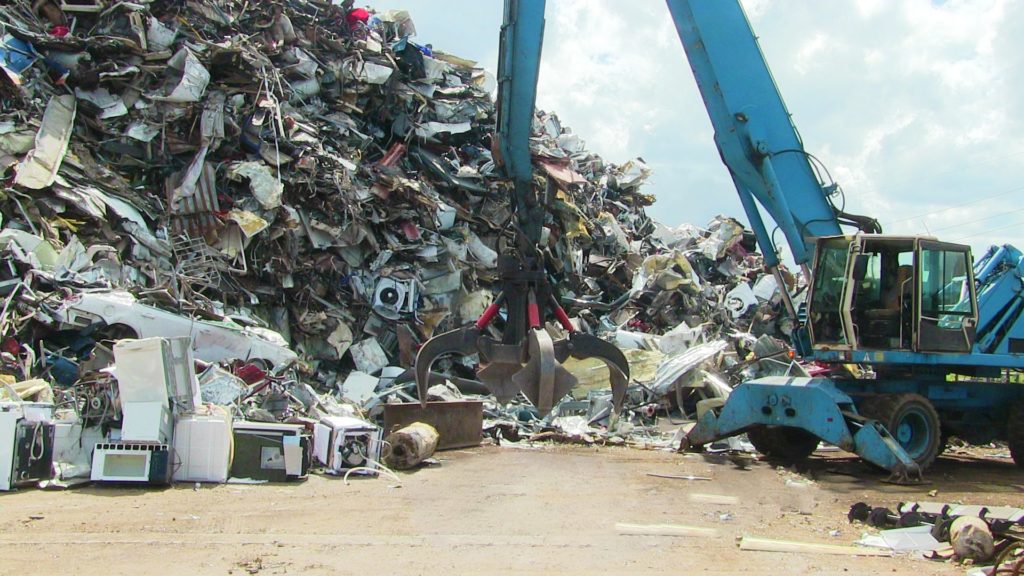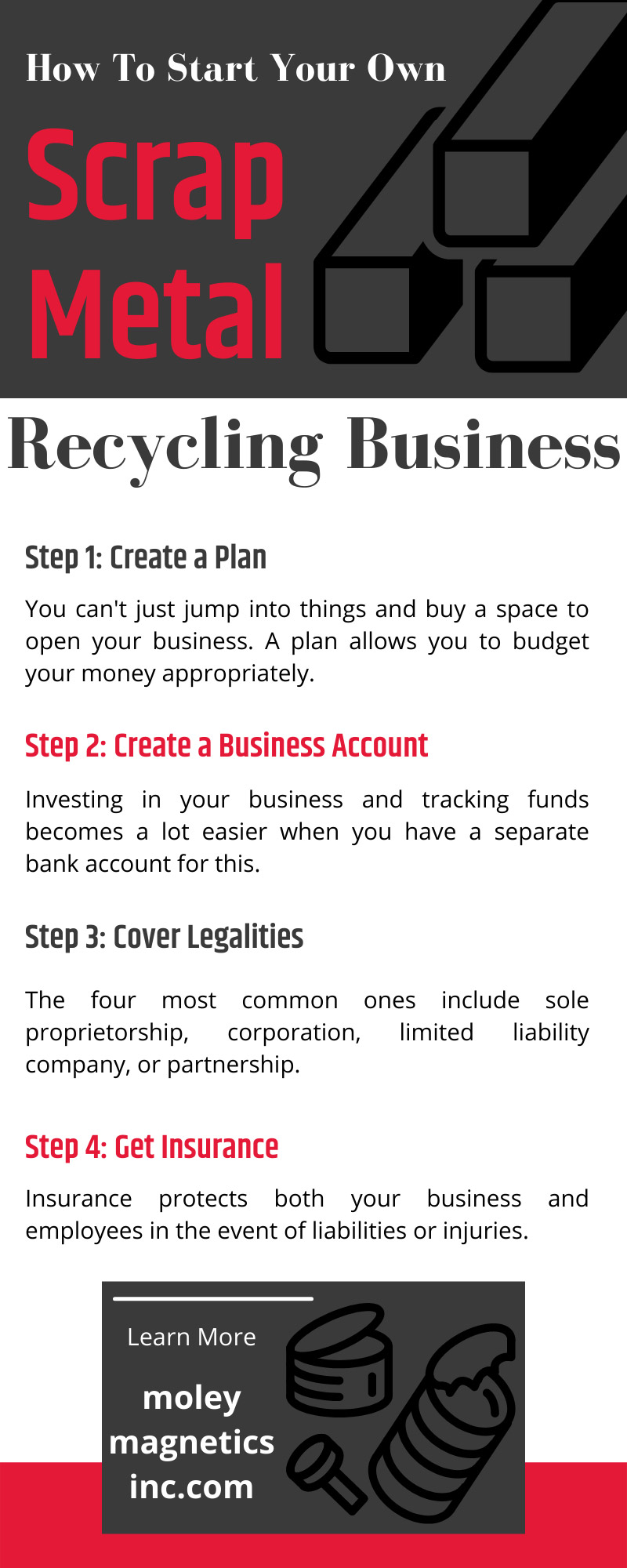
How To Start Your Own Scrap Metal Recycling Business
As environmental awareness increases, so does the need for more metal recycling companies. After all, various industries—automotive, appliance, construction, etc.— produce scrap metal, so we need someone to recycle it. Get the advice you need in this article on how to start your own scrap metal recycling business in just a few simple steps.
Step 1: Create a Plan
You can’t just jump into things and buy a space to open your business. A plan allows you to budget your money appropriately. Consider the following:
- Decide on a target market: What industries do you most want to sell to?
- What amount you’ll pay sellers: What will you pay in exchange for scrap metal?
- What you charge: How much will ingots cost once you resell the scrap?
- Business name: How will your business name help you stand out?
- Equipment: What kind of excavators, material handlers, excavator scrap shears, scrap yard magnets or waste handling grapples are needed?
Owning a business isn’t easy and requires a lot of planning and understanding of your industry. Investigate the ongoing cost for various metal types, so you pay and charge partnering businesses appropriately.
Stick To a Budget
One of the first things you should do as you plan is to create a budget. How much money will you initially invest into the business? Your starting budget should cover the cost of land, machinery, transportation, employee pay, and more. Avoid making those big-ticket purchases right away if you don’t have to, and focus on purchasing the necessities instead.
Remember Ongoing Expenses
You should also note those ongoing expenses like taxes, payroll, and insurance as you create your budget. These unavoidable expenses can build up in a hurry.
Understanding Your Target Market
When it comes to a target market, you’ll have to decide what types of metal you’ll scrap as this will impact the types of businesses you will work with. For example, if you only scrap iron-based material, you can only sell it to those who will use it.
Additionally, the type of metal you decide to scrap impacts how much you’ll sell it for—you’ll make more money selling copper than you would aluminum, but it may be harder to obtain in your area.
Naming Your Business
Naming your business is among the most important parts of ownership, so take time to do so. You’ll want something easy to remember but also fresh in the customer’s mind. Once you settle on a name, you’ll need to ensure no other business already has claims to it, and if not, register it for yourself.
Step 2: Create a Business Account
Investing in your business and tracking funds becomes a lot easier when you have a separate bank account for this. This way, you can also invest in new assets and track other expenses you make without worrying about it getting intermixed with your personal spending.
Pro Tip
When you open a business account, get a credit card for the company. This way, you can charge expenses such as tools and machinery to a single account that is easy to track and helps improve your company’s credit history.
Step 3: Cover Legalities
When the time comes to register your business, you’ll have to decide what type of business structure you’d like to implement. The four most common ones include sole proprietorship, corporation, limited liability company, or partnership.
After settling on a business structure, you’ll also have to register for taxes—you’ll do this after picking a business structure since that impacts how you’ll pay. This is also where having a business account at the bank comes into play. When the time comes to file your taxes, it’s much easier to note your expenses and determine what you can write off when business and personal money remain separated.
Obtaining Licenses
Finally, you’ll also need to obtain the required permits and licenses so you can open a shop, such as a metal recycling license and a Certificate of Occupancy.
Since you’ll buy and resell metal, you’ll need the appropriate license to do so legally. Almost every state requires businesses in your industry have a metal recycling license to ensure you follow legal measures throughout the life of your business. If you don’t know what licenses you need, contact your city clerk’s office for further information.
Step 4: Get Insurance
You’ll need insurance for both your business and employees, so you’ll have to decide on which policies you prefer. You may find some that are out of your price range, so keep your budget in mind as you look around for what’s best. Insurance protects both your business and employees in the event of liabilities or injuries.
Step 5: Purchase the Essential Tools
One of the most important parts of knowing how to start your own scrap metal recycling business is gathering the necessary tools. Before you begin collecting scrap, you should purchase the appropriate tools and equipment, so you don’t wind up with piles of scrap metal and no way to recycle it. You’ll need:
- Company vehicles to transport scrap
- Storage facilities for scrap and ingots
- Toolbox with wrenches, screwdrivers, etc.
- Power drills and drill bits to disassemble materials
- Wire granulators to separate wire from casing
- Scrap yard magnets to separate ferrous from non-ferrous metals
In addition to this, employees should have the protective gear so they can safely handle all metals throughout the recycling process. By having all of this before officially opening up shop, you’ll be completely prepared, and your team of workers can complete tasks more efficiently.
Pro Tip
Buy your scrap yard magnet, waste handling grapple or excavator scrap shear and other machinery for recycling from Moley Magnetics. As industry leaders, see we’ve got all the high-powered equipment you need to make your business a thriving success!
Step 6: Begin Collecting Scrap
Once you’ve covered all the essentials, it’s finally time to open your doors and begin collecting scrap. Consider marketing yourself online or contacting local businesses working in the metal industry to see if they have metal to recycle.
The more you advertise your business, the more likely you are to attract new customers, and as you work with these companies, you can build relationships. As you establish these relationships, ask for references to further expand your services throughout the community.


